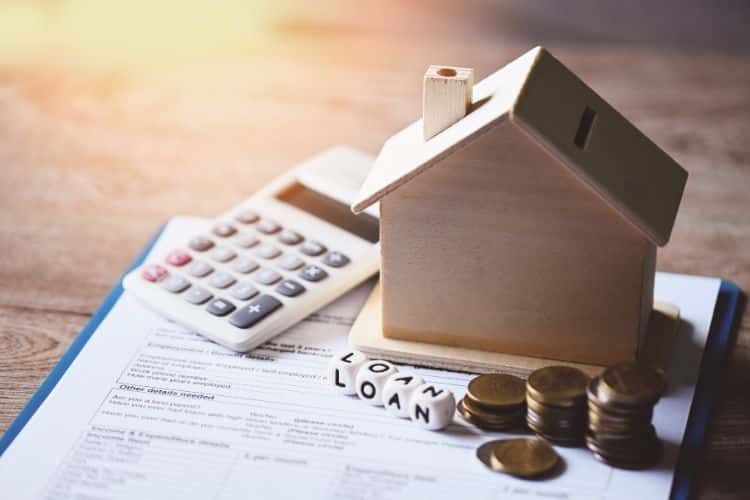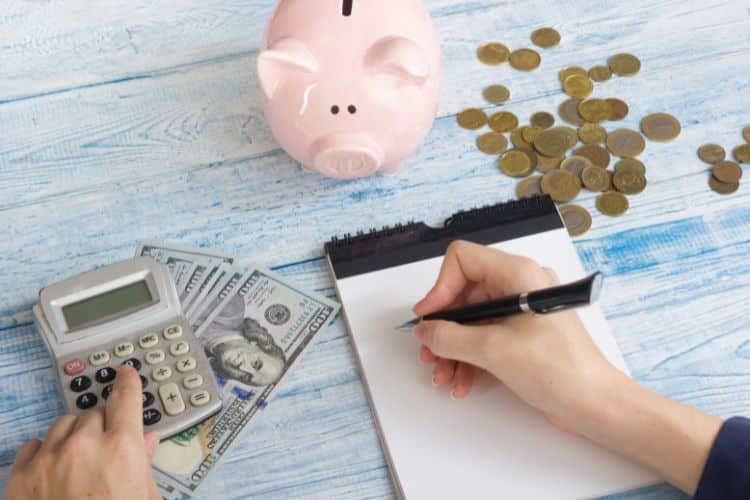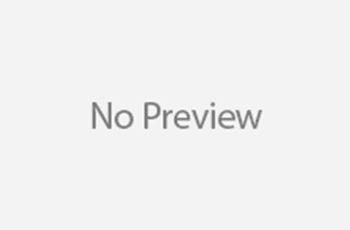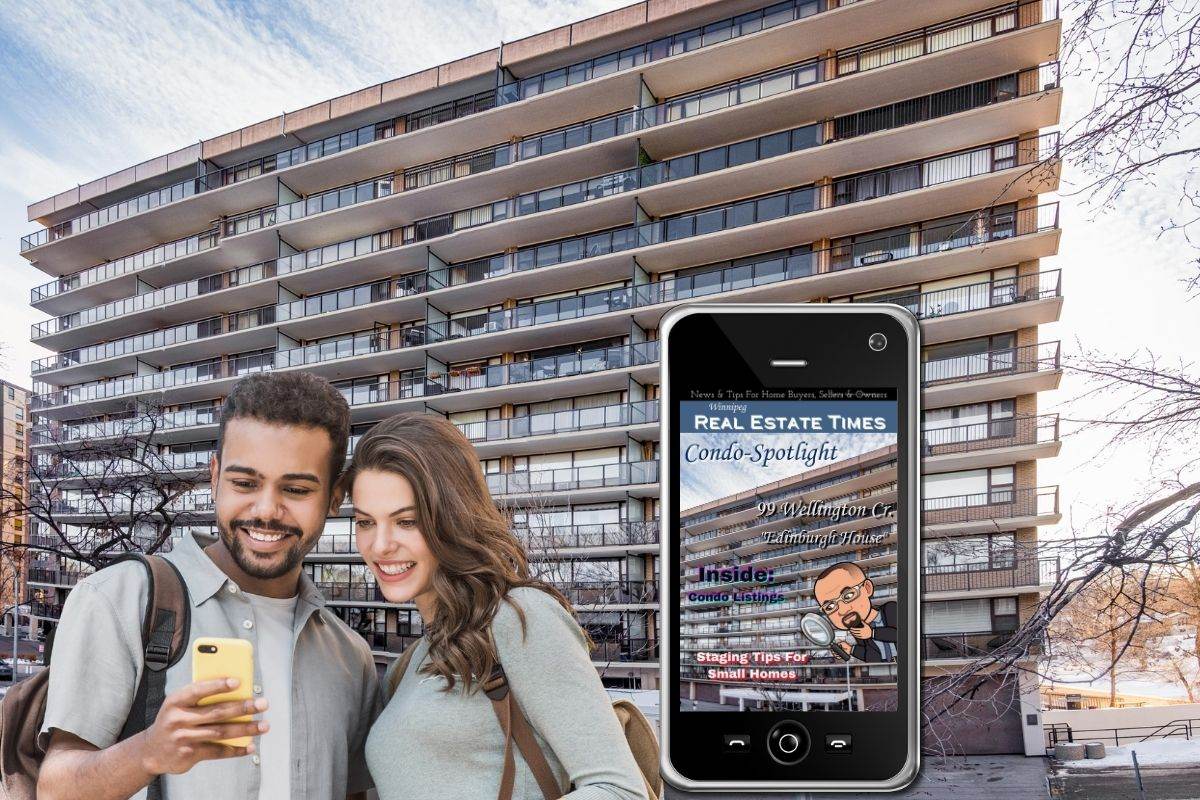Buying a house is an exciting milestone for many people, but can also be a significant financial commitment. Understanding the costs of purchasing a home is essential, from upfront expenses to ongoing financial considerations. In this guide, we’ll explore everything you need to know about the cost of buying a house so you can make an informed decision.
Key Takeaways:
- Buying a house involves both upfront expenses and ongoing financial considerations.
- Upfront costs to consider include the down payment, closing costs, and other fees associated with the transaction.
- Mortgage options, interest rates, and ongoing costs like property taxes and insurance are significant financial considerations when buying a house.
- Additional expenses like home inspections, appraisals, and potential renovations can arise during house-buying.
- The location of a property can impact the overall expenses, so it’s essential to consider neighborhood, school district, and proximity to amenities.
- Managing and budgeting your finances as a new homeowner is crucial, including setting up an emergency fund, calculating monthly expenses, and creating a long-term financial plan.
- Assistance programs and grants can help alleviate the financial burden of buying a house, especially for first-time buyers or low-income individuals.
- Home inspections are crucial in uncovering potential issues with a property and helping with negotiation and decision-making.
- Considering a property’s resale value and appreciation potential can impact your decision-making process and the overall cost of buying a house.

Calculating the cost of buying a house
What You Need to Know Before Buying a House
Before purchasing a house, it’s crucial to understand that hidden costs may surpass the purchase price. Homebuyers should familiarize themselves with the different types of mortgages to make an informed decision. Budgeting is essential to determine affordability and avoid any financial strain. Additionally, homeownership comes with recurring costs such as homeowners insurance, HOA fees, maintenance expenses, and other potential hidden costs that can be significant, unexpected, and a severe strain on the budget.
Researching the real estate market is vital to finding a home that aligns with your needs and budget. Potential buyers can navigate the process confidently and make a sound investment by considering these factors. Here are some of the additional costs of owning a home.

Budgeting is essential in the process of calculating the cost of buying a house.
The Importance of Budgeting Before You Buy
Setting a budget is crucial when considering the purchase of a new home. It allows you to determine how much you can afford and avoid financial stress. Start by calculating your monthly income and expenses to get a clear picture of what you can comfortably spend on a house. Remember to consider the upfront costs, such as the down payment and closing costs.
Budgeting helps you stay within your means and prevents overspending, ensuring a smooth home-buying process. By knowing your budget, you can make informed decisions and avoid potential financial troubles in the future.
How to Determine Your Home Affordability
To determine your home affordability and understand how much you can comfortably spend on housing, it’s essential to calculate your debt-to-income ratio. Remember that as of March 2023, the median existing home price in the U.S. was $375,700, reflecting the current state of urban development. Your credit score and history should also be considered when determining your affordability.
Consider any other financial obligations, such as student loans or car payments. Consulting with a lender will give insight into the loan amount you’re eligible for. Additionally, you can use online affordability calculators to estimate what you can afford.
Mortgage Affordability Calculator
Understanding the Different Types of Mortgages
When buying a house, it’s essential to understand the different types of mortgages available. Several options exist, such as conventional, FHA, VA, and USDA loans. Each type of mortgage has its own set of requirements and benefits. Researching the interest rates and terms associated with each option is crucial.
Consulting with a mortgage lender can help you determine which type of mortgage works best for you. You can make an informed decision by understanding the pros and cons of each mortgage type.

A qualified mortgage lender can help you determine the cost of buying a house.
Upfront Cost of Buying a House
When buying a house, there are several upfront costs to consider. One of the most significant expenses is the down payment. Additionally, there are closing costs, including appraisal fees, title insurance, and attorney services. Appraisal costs can range from $300 to $600, depending on the size and location of the home. Investing in other expenses like home inspection and moving costs is also essential.
A home inspection can cost between $300 and $500 on average. Another potential cost is private mortgage insurance (PMI) if you’re applying for a mortgage. To ensure you have enough savings, calculate the total upfront costs and budget for routine maintenance and repairs. Home insurance is another essential expense to consider when buying a house.
According to Nerdwallet, the average cost of home insurance is $1,784 per year – but this number can vary depending on where you live, the size of your house, the scope of the coverage, and so on. In addition to these costs, it’s crucial to budget for average annual maintenance and repair costs, which can amount to $2,913.
https://www.hud.gov/press/press_releases_media_advisories/HUD_No_23_059
The Down Payment and Closing Costs
When purchasing a house, the down payment is a crucial aspect to consider. It is typically a percentage of the home’s purchase price and varies based on your mortgage loan type. Different loan options may require anywhere from 3 to 20 percent down payment, while some allow for no money down at all. If you’re buying a $200,000 home, for example, and put 10 percent down, or $20,000, you’d be getting a mortgage for $180,000.
Additionally, closing costs should be considered, ranging from 2% to 5% of the purchase price. Negotiating with the seller for lower closing costs is a good idea. First-time homebuyers may also explore down payment assistance programs. Saving for the down payment and closing costs is an essential step in the home-buying process.

Be sure to include a home inspection in your cost of buying a house
Other Fees and Expenses to Consider
When buying a house, it’s essential to consider other fees and expenses that may arise. If you’re purchasing a property in a community, you may have to pay homeowners association (HOA) fees, also known as HOA dues. These fees contribute to the upkeep and maintenance of shared amenities and common areas, such as swimming pools and security gates.
Remember to factor in the homeowner’s insurance policy cost to protect your investment. Property taxes should also be budgeted, as they vary depending on the house’s location. If you’re buying a condo or co-op, you’ll have a monthly HOA fee on top of your mortgage payment. That fee pays for shared amenities, such as landscaping or pools, or maintenance and repairs to the building or shared community spaces.
Finally, it’s wise to set aside funds for unexpected repairs and emergencies. Ensuring you have an emergency fund will help cover any unforeseen costs that may arise.
How To Use Your Mortgage Calculator
Click the arrow to expand this text [expand]
Home Value: This is the selling price of the home you intend to purchase.
Down Payment Amount: This is how much money you have for your down payment.
Loan Amount: This is simply calculated by subtracting your down payment from the purchase price of your home.
Interest Rate: This is the annual percentage rate you will pay. You will have to choose between a fixed-rate and an adjustable-rate mortgage. Could you check your local papers for current mortgage rates?
Loan Term: This is the length of time of the home loan. In Canada, this is most commonly 25 years, while a 30-year mortgage is typical in the US. You CAN opt for a shorter-term loan, such as a 15-year mortgage if you wish to pay your home off sooner. Remember that even if you ‘lock in a fixed rate,’ it will likely be only for a few years.
Property Tax: This is where you enter your annual property taxes.
PMI = Property Mortgage Insurance: Sometimes called ‘private mortgage insurance,’ this is required ONLY if you put less than 20% down. This becomes part of your monthly mortgage payment. Could you check with your mortgage professional for any local regulations?
Homeowner’s Insurance: If you get a mortgage from a lender, that lender will insist on you obtaining homeowners insurance (fire and flood insurance) for the life of the loan.
Monthly HOA: This is a homeowners association fee (HOA fee) most familiar in the US, although some Canadian neighborhoods now have this added fee. If you’re buying a condo, this is a great place to enter your monthly condo fees.
[/expand]
Negotiating Home Buying Costs

Working with a real estate agent can help cut the cost of buying a house
Negotiating closing costs can lead to significant savings throughout the home buying process. To ensure the best mortgage terms, it’s crucial to research and compare quotes from different lenders. Working with a skilled real estate agent who excels in negotiation is key to securing the best deal possible.
Additionally, exploring options to reduce or eliminate private mortgage insurance (PMI) can further lower costs. Once you have at least 20% home equity, mortgage insurance can be canceled. Finally, negotiating repairs or home improvements as part of the purchase agreement can provide additional value.
By employing these strategies, home buyers can successfully navigate the negotiation process and potentially save thousands of dollars.
How to Negotiate Closing Costs
When negotiating closing costs, it’s important to start by requesting a detailed breakdown from your lender. This will help you identify any unnecessary fees and allow you to negotiate better terms. Additionally, shopping around for services like title insurance and appraisal can help you find competitive pricing.
Don’t be afraid to ask the seller to contribute towards closing costs as part of the negotiations. You may also consider negotiating a lower interest rate, which can significantly reduce your long-term mortgage costs. Throughout the closing process, be prepared to advocate for yourself and negotiate whenever necessary.
Tips for Getting the Best Home Inspection Deal
When it comes to getting the best home inspection deal, there are a few tips you should keep in mind. First, take the time to research and compare different home inspection service providers. This will help you find competitive pricing and ensure you’re getting the best value for your money.
Additionally, asking for recommendations from trusted sources can help you find a reputable home inspector. Another way to save money is by bundling services like a home inspection, pest inspection, and radon testing. This can often result in discounts or reduced costs.
When scheduling the inspection, make sure to choose a period that allows for any necessary repairs or negotiations. Once the inspection is complete, review the report thoroughly and consult with professionals if needed for further evaluation. By following these tips, you’ll be well-equipped to get the best home inspection deal possible.
Finding the Right Home for Your Budget
When searching for a home that suits your budget, it’s important to take several factors into consideration. Begin by determining your budget based on your income, expenses, and desired lifestyle. To gain a better understanding of how much you can afford, get pre-approved for a mortgage.
Thoroughly research neighborhoods and property values to find homes within your price range. When evaluating homes, consider factors such as location, amenities, and future resale value. Collaborate with a real estate agent who understands your budgetary constraints and priorities. By following these steps, you can find the right home for your budget.

Know the cost of buying a house BEFORE you go searching online
How to Search for Homes Within Your Price Range
To search for homes within your price range, you can utilize online real estate platforms. These platforms allow you to refine your search criteria and filter out properties that exceed your budget. Additionally, consider exploring different neighborhoods or areas that may offer more affordable options.
Attending open houses and scheduling viewings can help you assess properties in person. Working with a real estate agent who has access to exclusive listings can also be beneficial. They can not only help you find homes within your price range but also negotiate the best price for your desired home.

Working with a REALTOR can actually help cut the cost of buying a house
Working with a Real Estate Agent to Find Your Dream Home
Working with a real estate agent can be incredibly beneficial when it comes to finding your dream home. These professionals have the expertise and knowledge to navigate the complexities of the home buying process, saving you both time and money. Real estate agents have access to a wide range of homes, allowing them to help you find the perfect fit for your needs. Additionally, they can negotiate on your behalf to secure the best deal possible.
By working with a real estate agent, you’ll gain peace of mind and guidance throughout the entire process, ensuring a smooth and successful home buying experience.
Conclusion
In conclusion, buying a house is a significant financial decision that requires careful planning and consideration. Before you start your search, it’s important to understand your budget and determine what you can afford. Take into account not just the purchase price, but also the upfront costs such as the down payment and closing costs. Don’t forget about other fees and expenses that may arise during the home buying process, adding to the total cost of buying a house.
Negotiating the costs associated with buying a house can help save you money. Be sure to explore options for negotiating closing costs and finding the best deal on a home inspection. Working with a real estate agent can also be beneficial in finding the right home within your budget.
Remember, buying a house is a complex process, but with proper research and planning, you can make a well-informed decision that suits your financial goals.
F.A.Q’s About The Cost of Buying a House
What salary do I need to afford a $300,000 house?
To afford a $300,000 house, the required salary depends on factors like location, down payment, and credit score. Generally, it’s recommended to spend no more than 28% of your gross monthly income on housing expenses.
With a 20% down payment, an annual income of around $75,000 would be needed. Remember to consult a financial advisor for personalized advice. The cost of sewer and water is an essential utility bill that should also be considered when budgeting for homeownership.
How much should I expect to pay in closing costs when buying a house?
Closing costs when buying a home loan can vary based on location and price. Typically, they range from 2% to 5% of the home’s purchase price. These costs include fees like appraisals, title insurance, attorney fees, and other expenses.
Remember to budget for closing costs in addition to your down payment and other expenses. A rule of thumb that may help you anticipate these expenses is that they typically range between 2% and 10% of the home sale price.
For additional details, read this post on closing costs.
Should I get pre-approved for a mortgage before looking at homes, and would that affect the overall cost of buying a house?
Getting pre-approved for a mortgage before looking at houses is highly recommended. It helps determine your budget and prevents falling in love with a house outside your price range.
Pre-approval doesn’t impact the overall cost but gives you negotiating power during home-buyings.
How much house can I afford if I make $75,000 a year?
Based on a general rule, your monthly mortgage payment shouldn’t exceed 28% of your gross monthly income. With a $70,000 annual income, assuming a 20% down payment and current interest rates, you may be able to afford a home priced around $300,000.
Other factors like debt-to-income ratio, credit score, and location will also impact affordability. Consult with a financial advisor or mortgage lender for personalized advice. You may also want to consider the cost of routine maintenance that might have previously fallen on your landlord, such as snow removal, yard care, HVAC tuneups, and heating, when calculating your monthly payment.
 About the Publisher
About the Publisher
Bo Kauffmann is a residential real estate agent with over 18 yrs experience in helping buyers and sellers achieve their goals. Inducted into the REMAX Hall of Fame in 2010 and receiving the REMAX Lifetime Achievement Award in 2019, Bo has sold over 500 houses and condos in the Greater Winnipeg market. He is an accredited buyer representative (A.B.R.) and a Luxury Home Marketing Specialist.
Bo provides exceptional service to First-Time Home-Buyers, Seniors looking to downsize and Home Sellers of all ages.
He can be reached easily By E-Mail or call/text him Call/Text Here
Never miss an episode of our real estate podcast. Install our FREE Podcast App available on iOS and Android. For your Apple Devices, click here to install our iOS App. For your Android Devices, click here to install our Android App. Check my videos on Youtube




